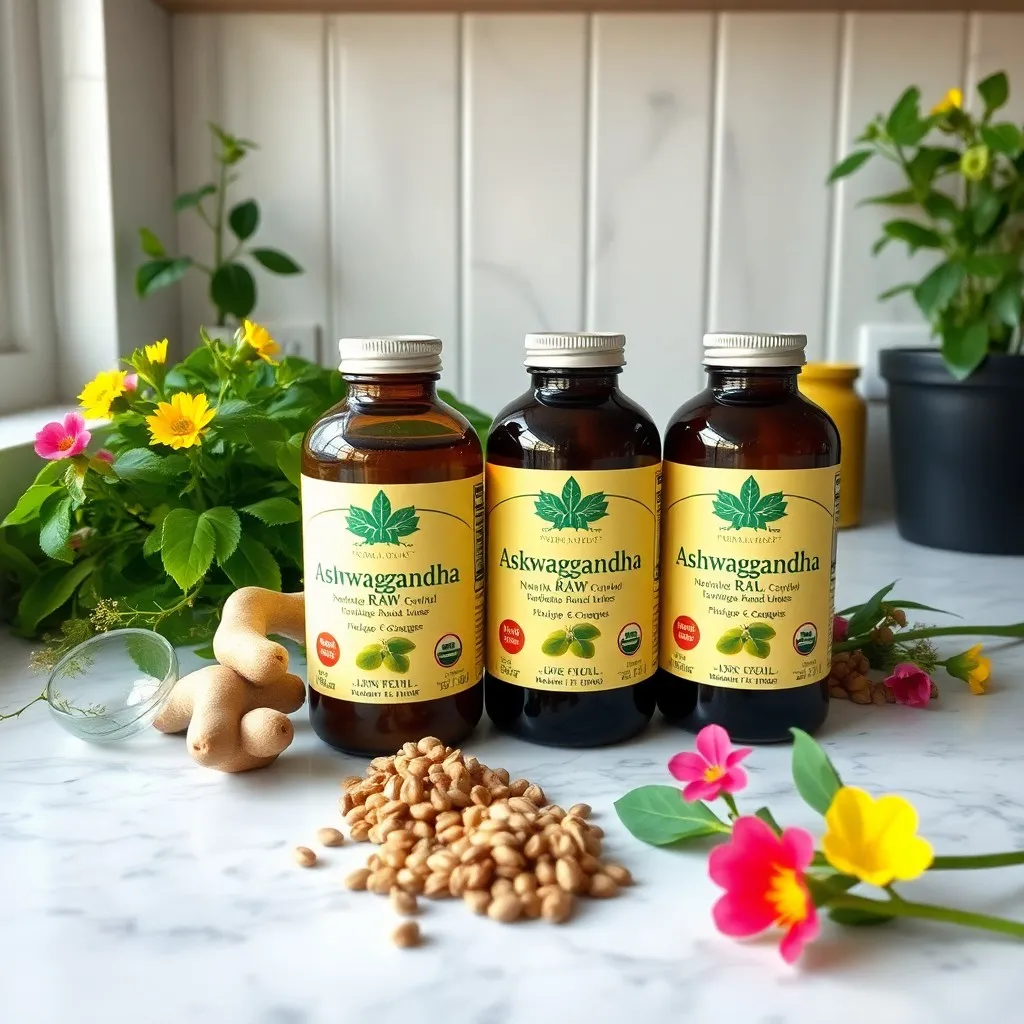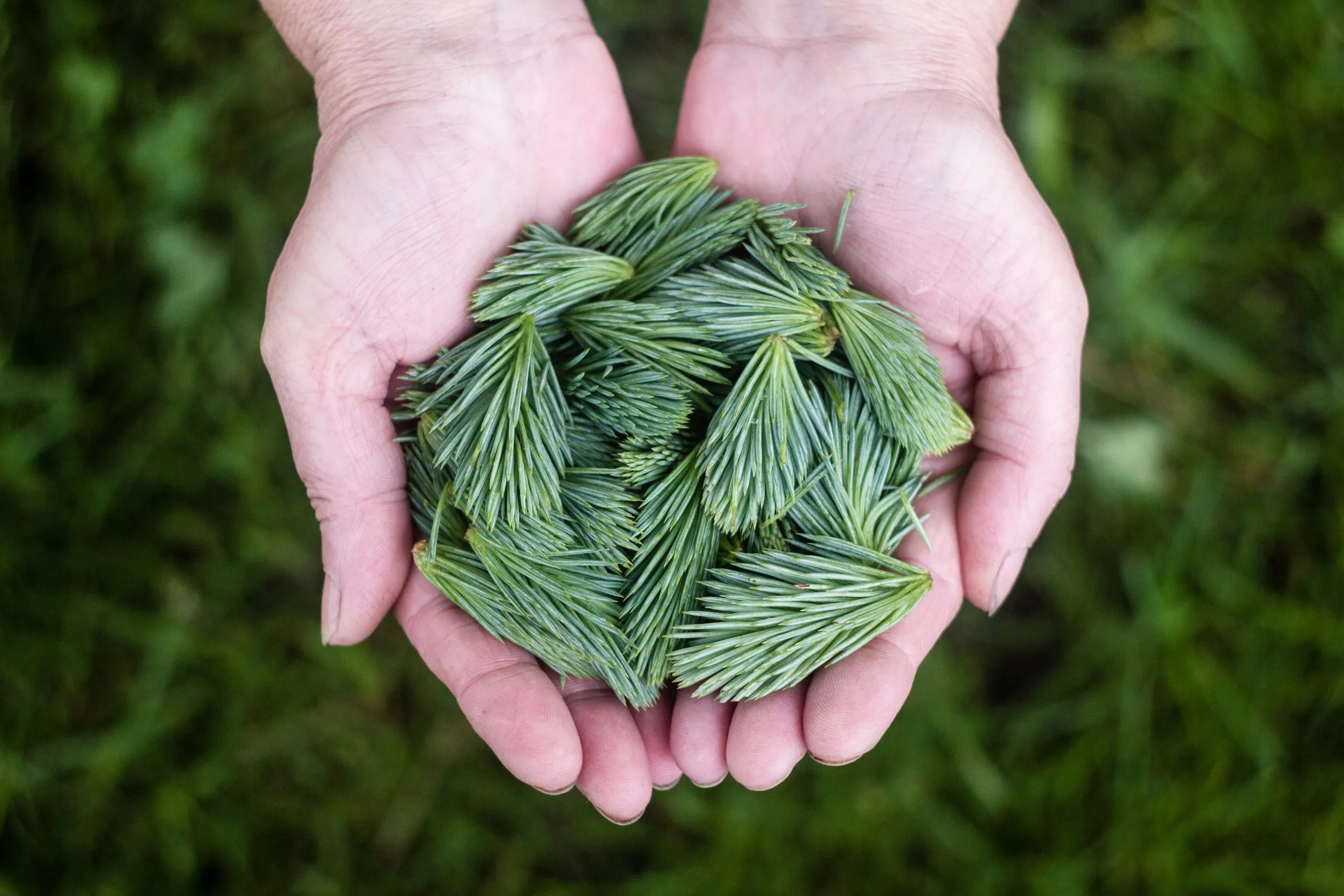Holy Basil: The Ultimate Herb for Stress Relief and Wellness
Key Points
- Holy basil, or tulsi, is a fragrant herb with ancient ties to traditional medicine. It is different from the usual culinary basil due to its aromatic properties and medicinal value.
- Tulsi provides powerful adaptogenic benefits. It’s known to assist the body’s stress response, promote mental clarity, encourage a healthy metabolism, and boost immune function.
- There are three primary varieties of tulsi: Rama, Krishna, and Vana. Each variety offers unique flavors and benefits, so pick the right one for your individual wellness goals.
- Scientific studies are still uncovering Tulsi’s active compounds, including eugenol. As researchers unlock the secrets of this ancient herb, they are validating many of its traditional uses for promoting holistic health and cellular protection.
- Tulsi can be enjoyed in many ways, including teas, smoothies, and supplements, and growing your own plant ensures freshness and easy access for daily use.
- So there you have it—use Tulsi wisely to enjoy the full benefits! Pay attention to your dosage, watch for potential medication interactions, and select ethically sourced, high-quality products.
- TULSI’S BENEFITS – Our formula is optimized to give you the most of Tulsi’s extensive health benefits. Holy Basil helps support a healthy stress response
- QUEEN OF HERBS – Cherished in India as the “Queen of Herbs,” Tulsi promotes a sense of calm well-being. Formulated from USDA-Certified Organic herbs, our blend is Tulsi in its purest form
- POWERFUL ADAPTOGEN – Tulsi is famous for helping support the immune system, stamina and endurance
- GROWN SUSTAINABLY USING REGENERATIVE AGRICULTURE – With great attention to sustainability, we are growing and harvesting our herbs ethically, partnering with small family farmers to restore vibrant health to the communities and land of India
- LEED PLATINUM CERTIFIED – In 2018, Organic India became the first food production facility in India to obtain the LEED Platinum certification – setting the standard of excellence and commitment to the well-being of the community, the environment, employees, and farmer partners
Last update on 2025-11-10 / Affiliate links / Images from Amazon Product Advertising API
Holy basil, or Tulsi as it’s commonly known, is an aromatic green leafy herb. It has a deep-rooted tradition as an herbal medicine and culinary herb.
The most popular use of holy basil is its flavor profile—mildly peppery and spicy, with an intense clove-like aroma.
That’s one of the most common uses of holy basil today, as it can help the body cope with stress and maintain a positive demeanor. The leaves, flowers, and stems are commonly steeped to make tea or incorporated directly into foods for flavor and health benefits.
Holy basil adapts easily to any warm location and is simple to grow in indoor pots or outdoor gardens.
Its botanical credentials are deep, rooted in both traditional and modern wellness. This makes it ideal for everyday use by anyone looking for natural solutions to feel their best.
The following section explains its most common uses and how it integrates into everyday life.
Holy Basil: Beyond the Name

Holy basil, or Ocimum tenuiflorum, is undoubtedly one such herb that goes beyond its ubiquitous kitchen use. For thousands of years, this plant has occupied an important place in traditional medicine, particularly in South Asia.
Used in Ayurveda and Siddha systems, holy basil has been utilized for conditions such as stress, cold, and skin conditions.
Its narrative arc moves from the sacred gardens of Indian temples to today’s health food stores around the world.
What Tulsi Truly Is
Many people get tripped up by the names holy basil and tulsi. Tulsi—taken from the Sanskrit word that means “the incomparable one”—has profound cultural significance. In contrast to the sweet basil commonly used in Western cooking, tulsi has much smaller leaves and a more pungent, spicy aroma.
Both plants are part of the same basil family. Tulsi is different, identifiable by its sturdy stems, fuzzy leaves, and rich, clove-like scent.
The plant’s essential oils are rich in camphor, eucalyptol, and eugenol. These compounds not only give tulsi its characteristic aroma but are thought to contribute to its medicinal properties.
Not Your Average Basil
The flavor of holy basil is very different from the mild, sweet flavor of Italian basil. It provides a peppery, clove-like pungency to Thai dishes like phat kaphrao.
Outside the kitchen, Tulsi’s main applications are in teas, tinctures, and powders for daily wellness.
In many cultures, it is considered a symbol of purity and protection. In Hindu households, tulsi plants are often cultivated in courtyards, underscoring their significance in everyday worship and rituals.
Meet the Tulsi Trio
- Rama Tulsi: Green leaves, mellow flavor, popular in teas.
- Krishna Tulsi: Dark purple leaves, spicier taste, used for respiratory health.
- Vana Tulsi: Wild variety, lemony scent, valued for mood support.
Choosing the right Tulsi basil for your needs is essential—whether for calming effects, digestive support, or uplifting mood enhancement.
- Daily stress relief supplement: Himalaya Holy Basil (Tulsi) provides daily support to help you deal with stress, helping you relax while promoting tranquility; Delivered in capsule form, a convenient alternative to tulsi tea*
- Rooted in tradition & science: Holy Basil is considered sacred and is used to promote peaceful thoughts, cultivating calming effects and helping during times of occasional sleeplessness*
- Formulation inspired by Ayurveda: Our Holy Basil capsules include Holy Basil extract instead of simply crushed powder commonly used by competitors
- Thoughtfully crafted: Vegan, non-GMO, and gluten free without any fillers, dairy, soy, or corn; an ideal Ayurvedic supplement for common dietary restrictions
- Family-owned & trusted: Himalaya herbal supplements blend time-honored Ayurvedic herbs with over 90 years of family-owned expertise to deliver trusted and effective care
Last update on 2025-11-10 / Affiliate links / Images from Amazon Product Advertising API
Tulsi: Ayurveda’s Ancient Wisdom
Tulsi, or holy basil, occupies an important place in Ayurveda, the traditional Indian system of medicine. Today, this plant is recognized worldwide as a significant healing herb and spiritual symbol.
In Ayurvedic medicine, tulsi is known as “the incomparable one,” a reference to its unparalleled use in everyday pooja, holistic medicine, and home life. The holy basil plant is often used in various herbal teas, which has enhanced its popularity as a medicinal herb.
In traditional Indian households, tulsi is grown in the courtyards, believed to promote peaceful vibes and happiness. The plant offers emotional and spiritual healing, making it a crucial part of healthy lifestyle practices.
It’s inextricably tied to everyday worship (puja) and to significant life events, including marriage and death rites, underscoring its centrality in cultural rituals.
Holy basil checks all the boxes for being classified as an adaptogen. This is because it supports the body’s stress response, promoting equilibrium to both mind and body.
Its leaves are particularly rich in phenolic compounds, known for their powerful antioxidant and anti-inflammatory properties, which help mitigate metabolic stress.
These protective qualities combat toxins from pollution and heavy metals, which is especially important for those living in cities today.
Research has found that tulsi improves mood, enhances mental clarity, and supports the body’s natural recovery from stress, underscoring its potential as a holy basil supplement for overall wellness.
The “Incomparable One”
Ayurveda considers tulsi a complete-body companion. Ancient texts extol it for its ability to enhance health and protect against illness. In fact, Charaka Samhita, one of the oldest Ayurvedic texts, refers to tulsi as a “life-protector.
Today, individuals employ it to enhance respiratory function, relieve inflammation, and calm the nervous system. Tulsi’s influence spans the spectrum from everyday wellness to more profound healing.
Why It’s “Liquid Yoga”
The term “liquid yoga” perfectly captures Tulsi’s soothing nature. Sipping tulsi tea promotes a feeling of calm, centered relaxation, and mental clarity.
Many yogis drink it before meditation practice, or enjoy it as a soothing ritual to help mark the close of an active day.
Its mild flavor and scent have made it a go-to for anyone looking to unwind after a long day.
Sattvic Serenity Explained
Tulsi really takes the cake as a prominent sattvic herb, and in the Ayurvedic tradition, sattva is the quality of clarity, peacefulness, and harmony. Incorporating tulsi into your diet—whether through tulsi tea or fresh tulsi leaves—can help promote a calm mind and clarity of thought.
Sattvic living is about choosing what supports your body, mind, and spirit. Tulsi perfectly complements this intentional philosophy.
Tulsi’s Top Health Benefits

From immune system support to stress relief, here are all of tulsi’s top health benefits.
People around the world use tulsi for its impact on holistic health, typically in conjunction with balanced diets and mindful lifestyles. Tulsi contains many antioxidants and essential oils.
This excellent mechanism makes it a favorite herb for anyone wanting to improve their quality of life! Here’s a quick look at its main benefits:
- Helps manage stress and anxiety
- Boosts mental focus and mood
- Supports metabolic and blood sugar health
- Strengthens immune defense
- Improves oral hygiene
- Fights cellular damage
1. Soothes Stress, Calms Nerves
As an adaptogen, tulsi helps your body adapt to and manage stress. Studies indicate that it can reduce stress hormones, including cortisol.
Students often swear by Tulsi tea or extracts during stressful weeks of school or around exam time.
To start enjoying tulsi’s many benefits, use it regularly as an herbal tea or dietary supplement. Combine it with consistent sleep and exercise for maximum benefits!
2. Sharpens Focus, Brightens Mood
Tulsi’s neuroprotective compounds can protect against brain damage and boost brain function. It promotes mental clarity and mood by reducing neuroinflammation and promoting consistent neurotransmitter production.
Many folks I know enjoy using Tulsi before study sessions or ideation meetings. They frequently pair it with journaling or light exercise to achieve a more focused mind.
3. Supports Healthy Metabolism
Studies associate Tulsi with improved blood sugar and lipid profiles. This was an essential benefit for people looking to lose weight or manage pre-diabetes.
Sipping tulsi tea before mealtime may help maintain a regular metabolism.
You can use dried leaves in your cooking to achieve the same effect!
- Relaxation Support: Each serving of Wild & Organic holy basil tincture contains 600 mg of holy basil extract for relaxation and mood support.
- Natural Formula: Our liquid holy basil supplement is made with only vegan ingredients, free from GMOs, and contains no artificial additives.
- Alcohol-Free: Wild & Organic mood support supplement with holy basil leaves is vegetable glycerin-based, providing an alcohol-free tincture that is easy on digestion.
- Sweetness Without Sugar: Enjoy a pleasant supplement experience with Wild & Organic holy basil herb, which features a naturally sweet taste. Our holy basil leaf supplement uses glycerin for natural sweetness, with no added sugar.
- 84-Day Supply: Each 4 fl. oz. bottle of Wild & Organic tulsi drops contains 168 servings per bottle, providing an 84-day supply when taken two times per day.
Last update on 2025-11-10 / Affiliate links / Images from Amazon Product Advertising API
4. Bolsters Your Immune Shield
Tulsi’s oils and polyphenols, found in holy basil tea, support immune function to help the body more effectively repel viruses and bacteria. Incorporating this sacred herb into your daily routine, whether through herbal teas or cooking, can be particularly beneficial during cold and flu season.
5. Natural Ally for Oral Health
Tulsi’s antibacterial effect, derived from the holy basil plant, fights against plaque and gingivitis. Regularly chewing fresh leaves or using holy basil tea can help keep teeth clean and gums healthy.
6. Fights Daily Cellular Damage
Packed with high levels of antioxidants, particularly in Krishna tulsi, this powerful herb supports the body’s ability to cope with oxidative stress, which can damage cells.
Combining tulsi with other fruits and vegetables enhances its protective properties, protecting cellular health and detoxification.
Science Unlocks Tulsi’s Secrets

With growing interest in tulsi, or holy basil, science continues to explore and uncover what makes this herb so special. For hundreds of years, tulsi has been fundamental to Ayurveda, Siddha, and Unani medicine.
Today, scientists around the globe race to validate its myriad health claims and understand how its active compounds work their magic.
Scientific validation is more than parroting previously held notions. It brings evidence and confidence, particularly for the people who prefer hard facts before exploring herbal treatments.
Recent advances, such as the sequencing of Tulsi’s genome, have helped elucidate the specific genes associated with its many medicinal properties.
This is no small feat, as it allows researchers to pinpoint the plant’s ever-changing chemical landscape.
Research has found that Tulsi really does pack a punch due to its antioxidant, anti-inflammatory, and antimicrobial properties.
Additional studies have even linked the use of tulsi to improved oral health and a reduced inflammatory response. Other studies explore its impact on blood sugar and stress.
Key studies supporting Tulsi’s health claims include:
- 2015 review: highlighted Tulsi’s adaptogenic effects and impact on stress
- 2021 animal trial: showed potential anti-diabetic effects at high doses
- Clinical study: linked Tulsi to improved gum health and less plaque
- Genomic research: mapped out active genes and antioxidant pathways
Key Active Compounds Powering Tulsi
Eugenol is one of the most prominent compounds in tulsi. In addition to acting as an antioxidant, it helps calm inflammation. Other essential compounds, such as ursolic acid and rosmarinic acid, combat pathogens and provide cellular protection.
These compounds provide tulsi its unique adaptogenic qualities—supporting the body’s ability to adapt to stress. Of these, eugenol is especially recognized for its soothing anti-inflammatory and antimicrobial properties.
This makes it beneficial for encouraging gum health and healing mouth ulcers or other minor wounds.
Modern Research Highlights Benefits
To experience Tulsi’s benefits, modern research is moving beyond traditional uses and testing Tulsi in labs and clinical settings.
Contemporary research reveals some of Tulsi’s most beneficial effects, including lowering blood sugar levels, alleviating stress, and reducing swelling.
Perhaps most exciting, some tests suggest possible anti-cancer effects, though this is very early work. These findings corroborate the assertions of ancient medical systems.
Experts like Dr. Based on new studies, researchers believe Tulsi can also provide relief from chronic diseases, though they emphasize that more clinical trials are needed.
How Tulsi Stands Out Adaptogenically
Compared with other popular adaptogens such as ashwagandha and ginseng, tulsi comes out on top. It has more diverse applications.
It supports the body’s ability to maintain homeostasis in the face of stressors and protects cells from free radicals.
While all adaptogens offer unique benefits, it’s the combination of eugenol with other compounds that makes Tulsi stand out. Specifically, it works on so many body systems simultaneously!
How to Choose An Adaptogen
To get the most out of adaptogenic herbs like tulsi basil, consider your primary health concerns —such as reducing stress, dampening inflammation, or supporting the immune system —for a healthy lifestyle.
- Holy Basil Leaf (also known as Tulsi), is an adaptogenic herb that has historically been used to maintain emotional and physical health.
- It may help your body deal with stressors (physical, mental, emotional) while promoting general wellbeing. Holy Basil leaf extract has been found to support normal stomach function including maintaining healthy acidity and mucus levels.
- Holy Basil is also helpful in promoting the body’s natural detoxification processes and detox enzyme activity.
- It may support healthy oxidative stress levels by helping your body scavenge off excess free radicals.
- Tulsi boasts many beneficial properties, all to aid longevity and overall health and wellness.
Last update on 2025-11-10 / Affiliate links / Images from Amazon Product Advertising API
Embrace Tulsi in Your Routine
Embrace tulsi, or holy basil, in your routine. We think you’ll find that this small addition to your routine will make a big difference in your health!
People from all walks of life, from Ayurvedic practitioners to busy professionals, are using this ancient plant in their modern routines.
You can get tulsi as tea, powder, tablets, or even as an essential oil. For these reasons, many choose to incorporate tulsi into everyday life, enjoying its lovely, complex, earthy flavor and the calm, collected feeling it inspires.
Others report that Tulsi helps them experience clarity and lightness, both physically and mentally.
From tea bags to tinctures, tulsi suits busy lives and the crafty at-home herbalist alike.
Simple Ways to Enjoy Tulsi
- Sip tulsi tea. Tulsi tea can be made by steeping dried leaves in hot water.
- Include tulsi powder in smoothies to create a gentle, herbal flavor.
- Enjoy Tulsi tablets with warm water when traveling or during busy days.
- Mix tulsi leaves into salads or fresh juices.
- To fill your home with a calming aroma, try using tulsi essential oil in a diffuser.
Start with a smoothie on your first day! Combine a small handful of tulsi leaves, one banana, and a splash of coconut milk for a delicious, leisurely breakfast on the go.
Or, stir in fresh, chopped tulsi to lentil soups for an instant boost in flavor complexity. Freshness is key, so either choose leaves immediately before use or keep them in a superb, dry location.
My Favorite Tulsi Brew Ideas
Brew your own! A basic Tulsi infusion begins with one tablespoon of dried leaves steeped in 250 mL of hot water. For an extra kick, combine tulsi with hibiscus or gotu kola.
Experiment with lemon or a pinch of ginger for a soothing, restorative brew. Experiment with different herb combinations and steeping times to discover your personal favorite.
Tips for Growing Your Own
Gather your materials. Begin with a small grow pot, nutrient-rich soil, and some tulsi seeds. When watering your plant, make sure to water thoroughly and let the topsoil dry out between waterings.
Please put it in the sunniest area possible to ensure healthy growth.
Harvesting: Use only mature leaves that are ready to be harvested. With fresh tulsi, you can toss some into your meal, tea, or even a smoothie at any time.
Checklist for growing Tulsi:
- Pot with drainage holes
- Organic potting soil
- Tulsi seeds or starter plant
- Sunny window or balcony
- Watering can
Using Tulsi Wisely and Safely

Tulsi, or holy basil, has been used around the globe for centuries due to its calming properties and adaptogenic benefits. Using it safely means understanding how much to take and when.
Using it wisely and safely means knowing how it impacts you and choosing the right products. There is no official dosage for tulsi, and most studies are short, typically lasting up to 13 weeks.
Subjects in studies ranging in age from 10 to 80 have safely taken Tulsi. The long-term effects remain poorly understood. Tulsi has been used daily for centuries in many cultures and is generally regarded as safe.
We recommend discontinuation at least two weeks before surgery.
Potential Side Effects to Note
Generally, Tulsi is well tolerated by most individuals. That said, mild side effects such as nausea, headaches, or digestive upset are possible, particularly in the first few days of use or with higher quantities.
Being mindful of your individual responses is key, as effects can vary significantly between individuals. If you do start to feel bad after starting Tulsi, consider stopping or reducing the dose to avoid this adverse effect.
To reduce the risk of a mild stomach upset, drink water and eat with tulsi. Be mindful of how your body is responding at all times and discuss any questions with a healthcare professional empowered to provide guidance.
Medication Interactions to Know
Tulsi can potentially interact with blood thinners, diabetes medications, or drugs that impact the immune system. These risks are not thoroughly studied at this point.
For safety, talk with your healthcare provider before adding tulsi, especially if you take daily meds or have chronic health issues. Take a little bit at first and gauge your body over a couple of days.
Choosing Quality, Ethical Tulsi
Choose high-quality, certified organic Tulsi that contains no fillers. Choose brands with transparent sourcing—brands should provide information on where and how they grow their botanicals.
Responsible brands will prioritize fair pay for farmers and sustainable harvests. Look for products that have third-party testing, a short, clear ingredient list, and transparent company ethics.
Our Conclusion
Holy basil, or tulsi, is remarkable for its rich heritage of traditional use and present-day scientific inquiry.
It’s an herb people turn to to soothe stress, support their body’s immune system in fighting off invading germs, and promote heart health.
It’s effective in all its various forms—fresh leaves, teas, or easy-to-use extracts that you can buy at your local store.
Hundreds of thousands of people are feeling tangible effects! They drink tulsi tea to boost focus and clarity of mind, or incorporate it into their everyday lives to promote wellness.
If you’re looking for a plant with a rich history and documented benefits, look no further than this delightful herb—tulsi. As always, consult your health care provider for safety. Interested in learning more?
Experience Tulsi yourself, engage your friends and family in conversation, or explore further into its applications and research in the real world.
- Expertly extracted to promote energy and vitality.
- Rapidly absorbed liquid extract.
- Gluten-free and non-GMO.
- Herb potency assured through High Performance Thin Layer Chromatography (HPTLC) analysis.
- Thoroughly screened for synthetic herbicides and pesticides, heavy metals, bacteria, yeast and mold.
Last update on 2025-11-10 / Affiliate links / Images from Amazon Product Advertising API
Frequently Asked Questions
What is holy basil (Tulsi)?
Holy basil, or Tulsi, is a flowering plant in the mint family known for its potential adaptogenic benefits and highly prized in Ayurvedic medicine for its healing properties.
What are the main health benefits of Tulsi?
As a whole, Tulsi basil, a sacred herb, can help strengthen immunity, mitigate metabolic stress and anxiety, and improve heart health, underscoring its potential as an herbal supplement.
Is there scientific evidence supporting Tulsi’s benefits?
In short, yes—recent scientific studies have corroborated Tulsi’s renowned adaptogenic properties, particularly in reducing metabolic stress and supporting a healthy lifestyle. However, more human research is needed to provide more substantial evidence.
How can I use Tulsi in my daily routine?
You can experience Tulsi basil through herbal teas, dietary supplements, or by incorporating fresh leaves from the holy basil plant into your meals.
Is Tulsi safe for everyone?
Is Tulsi safe for everyone? As with any new herbal supplement, pregnant or breastfeeding women and those on medications should consult a healthcare provider before using holy basil tea.
Can Tulsi help with stress?
Yes, Tulsi, also known as holy basil, is recognized as a potent adaptogen that helps your body manage metabolic stress and maintain balance.
Are there any known side effects of Tulsi?
Potential side effects of Tulsi, a revered medicinal herb, are generally mild, including nausea or allergic reactions. Starting with lower doses of holy basil tea can help assess your body’s response.












